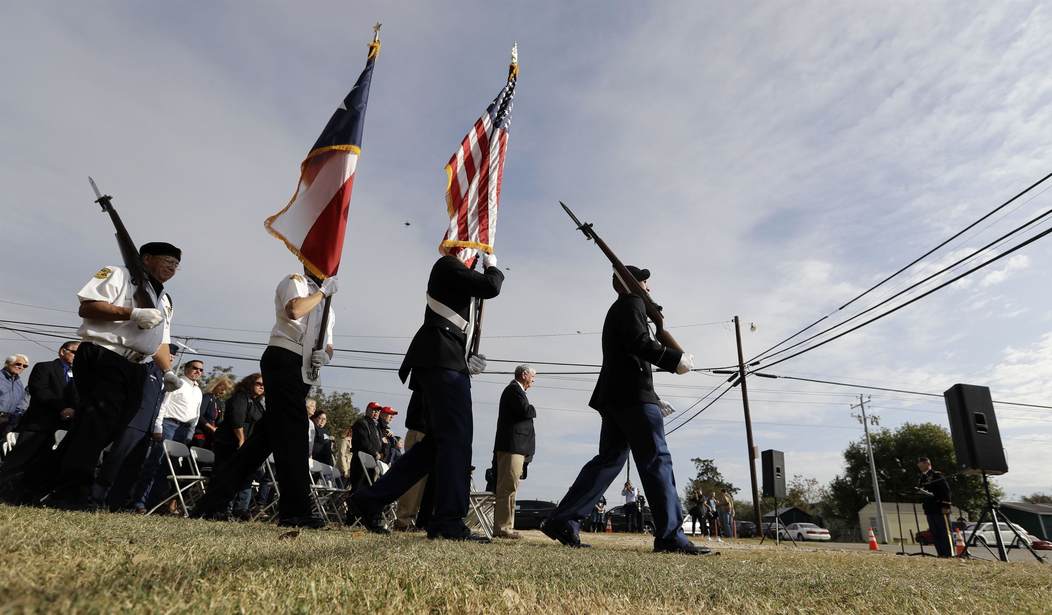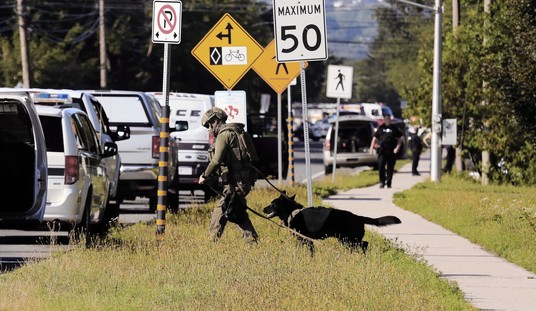Editor's Note: This piece was co-authored by James Jay Carafano.
No parent wants to put their child in harm’s way. We know; we are both parents. As parents, we know first-hand about the need to sacrifice, for the sake of our children and the family as a whole.
But we have firsthand knowledge of another kind of sacrifice — the kind that comes with military service. One of us served in the U.S. Army for 25 years. The other is married to an army veteran. We know all about the sacrifices and dangers those years brought. But we also know the truth of the adage, “freedom isn’t free.”
Few acts of public service are nobler, more essential for a healthy democracy, and honestly, more rewarding than volunteering for the armed forces, standing ready to fight for all of us.
But we can’t assume that an all-volunteer military force will always be there for us unless we — in our families, our schools, and our communities — make the case for public service. Recruitment is getting harder and harder, and it’s not due to lack of effort or funds.
The real problem is the evaporating pool of eligible recruits. Criminal records or physical fitness problems rule out a vast swath of potential recruits. But other factors include downward trends in areas such as civic education and engagement and propensity to serve among the nation’s youth.
Ordinary Americans can do much to reverse these trends. It starts, of course, in our own families and communities, doing everything we can to raise healthy, hard-working, educated children with strong moral values. In the end, that’s what makes a generation great.
Recommended
But we have our work cut out for us. Right now it is estimated that over 70 percent of American youth are not eligible for military service due to poor health, criminal records or lack of a high school education.
In addition, we can take steps to make sure that every eligible young man and woman learns about the opportunities, benefits, and value of serving in uniform. Here is a list.
Encourage local high schools to establish a Junior ROTC Program. These programs help instill discipline and values, teach teamwork and encourage physical fitness. Although Junior ROTC is not a military recruiting program, students who enroll in the program typically join the military at higher rates than their contemporaries. School principals or superintendents can apply directly to their region’s ROTC brigade to start a JROTC program.
Ask your school officials and school board members about what level of access they are providing to military recruiters. Visit local recruiters, and ask if they feel they are getting appropriate access. The “No Child Left Behind Act” (Public Law 106-398) requires high schools to give recruiters “access to high school students’ names, addresses, and telephone listings and the same access to high school students as is provided to colleges, or to prospective employers of those students.” Many schools restrict access to specific areas of the school like the commons or the career counseling offices.
Promote veterans as speakers in events such as 4th of July celebrations, Memorial Day events and other opportunities, particularly those in schools. Encourage veterans to discuss how the military changed their lives for the better. Even in the times of COVID, we can bring veterans’ stories to our children and students. For example, the stories of many Medal of Honor recipients are available online. The Library of Congress and the National World War II museum are storehouses of information about the experience of veterans.
Perhaps you’re responsible for planning a local event. Consider inviting a local recruiting office to participate. Fairs, or fundraisers or sporting events are great venues for recruiters to connect with potential volunteers. And please note: no one is ever coerced into joining the military; it is a completely voluntary process at every step. Recruiters are delighted to be asked to participate in such events.
Ask school officials to recognize those individuals who have chosen to join the military at high school graduations.Such recognition can mention that the individual is going to earn the ability to attend college tuition-free.
Encourage students going to college to consider joining ROTC programs.Often these programs provide tuition assistance. Historically Black Colleges and Universities, for example, have some of the best ROTC programs in the country.
Everyday Americans have an opportunity to fight for America every day. This is one example of something we can all do. It may seem that our nation’s media and outspoken critics are doing everything they can to chip away at patriotism and faith in America. Those voices must not be the only ones our children hear. Speak up. Take action. Fight for America.
Jessica Anderson is the executive director of Heritage Action for America. James Jay Carafano, a Heritage Foundation vice president, is responsible for the think tank’s research on matters of national security and foreign relations.

























Join the conversation as a VIP Member